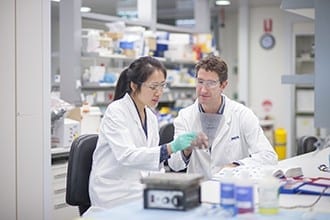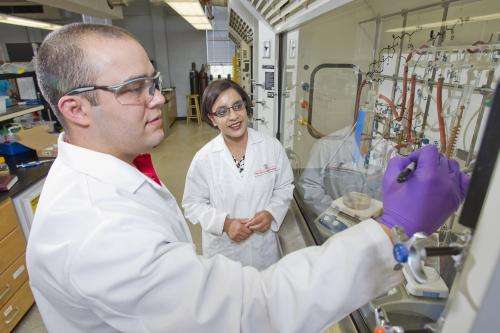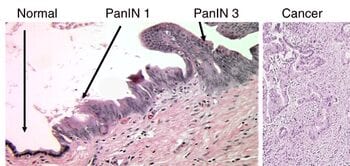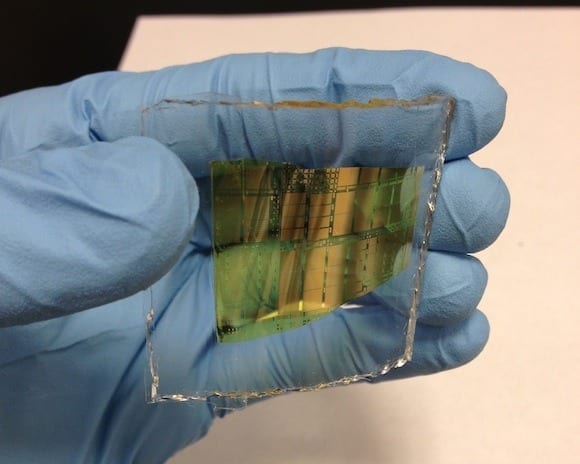
Melbourne researchers have shown a type of leukaemia can be successfully ‘reversed’ by coaxing the cancer cells back into normal development.
The discovery was made using a model of B-progenitor acute lymphoblastic leukaemia (B-ALL), the most common cancer affecting children.
Researchers from the Walter and Eliza Hall Institute showed that switching off a gene called Pax5 could cause cancer in a model of B-ALL, while restoring its function could ‘cure’ the disease.
Institute researchers Dr Ross Dickins and Ms Grace Liu led the study with institute colleagues and collaborators in Vienna. The study was published today in the journal Genes & Development.
Ms Liu said the team used a newly developed ‘genetic switch’ technology to inhibit then reactivatePax5 in the leukaemia model.
“Along with other genetic changes, deactivating Pax5 drives normal blood cells to turn into leukaemia cells, which has been shown before,” Ms Liu said. “However we showed for the first time that reactivating Pax5 enabled the cells to resume their normal development and lose their cancer-like qualities, effectively curing the leukaemia. What was intriguing for us was that simply restoring Pax5 was enough to normalise these cancer cells, despite the other genetic changes.”
Read more . . .
The Latest on: Gene switch reverses cancer
[google_news title=”” keyword=”Gene switch reverses cancer” num_posts=”10″ blurb_length=”0″ show_thumb=”left”]
via Google News
The Latest on: Gene switch reverses cancer
- Gene Therapy Newson April 27, 2024 at 5:00 pm
Genetic Signature May Predict Response to Immunotherapy for Non-Small Cell Lung Cancer Feb. 23, 2024 — A new study identified a set of 140 genes that may help predict enhanced disease-free ...
- Cancer Can Form without Genetic Mutations, Just Epigenetic Changeson April 26, 2024 at 6:30 pm
Tumors of epigenetic, not genetic, origin have been demonstrated, challenging the established idea that cancer is caused only by permanent changes to DNA ...
- Researchers identify novel gene networks associated with aggressive type of breast canceron April 23, 2024 at 5:00 pm
In recent years, breast cancer treatments have improved significantly, thanks to targeted gene therapy and immunotherapy. However, for the small group of patients diagnosed with the most ...
- Lung Cancer Cells Switch Oncogenic Driverson April 23, 2024 at 6:25 am
Mouse models mimicking the transition from a common form of lung cancer to a more aggressive one may help scientists develop future strategies to prevent this transformation.
- Gene therapy is halting cancer. Can it work against brain tumors?on April 19, 2024 at 11:58 am
Tumors must have a mutation found in approximately 20% of glioblastomas, and that can be identified by the UCSF500 cancer gene panel test. The second study will be open to glioblastoma patients ...
- Gene Therapy Is Halting Cancer. Can It Work Against Brain Tumors?on April 17, 2024 at 5:00 pm
Tumors must have a mutation found in approximately 20% of glioblastomas, and that can be identified by the UCSF500 cancer gene panel test. The second study will be open to glioblastoma patients ...
- Scientists 'switch off' breast canceron April 5, 2024 at 5:00 pm
Scientists have managed to 'switch off' breast cancer for the first time. They found removing a single gene from mice halted tumour growth and even reversed it in some cases. Their study could ...
- Genes vs. Lifestyle: Which Matters More for Health?on April 2, 2024 at 4:59 pm
An epigenetic change happens when lifestyle or environmental factors cause a particular gene to turn “on” or “off.” In the case of cancer ... t have just one switch.
- Researchers turn back the clock on cancer cells to offer new treatment paradigmon March 27, 2024 at 1:20 pm
First author Sandi Radko-Juettner, PhD, a former St. Jude Graduate School of Biomedical Sciences student, now a Research Program Manager for the Hematological Malignancies Program and senior ...
- What is cancer?on March 19, 2024 at 4:48 am
1 in 2 people in the UK will get cancer in their lifetime. Thanks to research many people are cured. Cancer starts when gene changes make one cell or a few cells begin to grow and multiply too much.
via Bing News










